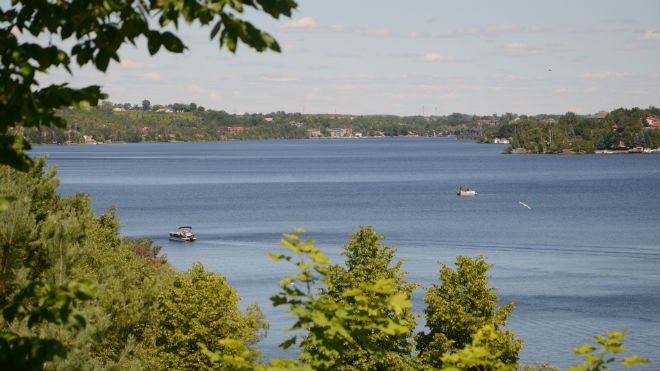“I don’t live on Ramsey Lake, but I drink the water.”
That’s true of 60,000 of us, but it was Pat Rogerson who said it at the June 22 planning committee meeting. She was one of many who expressed concerns over a proposed 171-unit subdivision on the Keast peninsula of Ramsey Lake.
Do we know what the impact would be on the lake? Do we know what the cumulative impact would be with the more than 1,000 new residential lots already approved in the Ramsey Lake watershed? No, because the long-awaited Ramsey Lake watershed study has not yet been done.
But here’s something we do know. When sewage lift stations flood, they can fail, and sewage ends up in the lake. When stormwater management ponds flood, they can overflow or be damaged, and contaminated water ends up in the lake.
These types of problems have been happening more frequently because there are more big rainfalls, and climate change means there will be even more in the future. Insurance companies are taking note, as are municipalities.
In a 2015 study by the University of Waterloo and The Co-operators, “failure of wastewater treatment systems, including pumping stations and treatment plants, due to a flood or storm runoff and consequent loss of electrical power was often noted (by Canadian cities) as an area of concern due to the location of treatment facilities within high-risk flood zones.”
So locating sewage lift stations in a floodplain is a known risk. And there is a rise in class action suits by residents against municipalities that don’t mitigate risks of flood damage.
Seems like a no brainer — avoid putting lift stations and stormwater management ponds in floodplains.
But guess where the lift station and stormwater management pond are located in this proposed development? That’s right. In the floodplain. Right next to the lake.
And according to a number of residents, draining into a spawning area for perch and trout known to the Department of Fisheries and Oceans and the Ministry of Natural Resources.
Here’s what the rules say: the Ministry of the Environment and Climate Change’s Guidelines says don’t do it. The Provincial Policy Statement and Official Plan say stay out of floodplains.
In the 2013 staff report, the Conservation Authority, engineering development, and drainage all raised this as a red flag. In the 2015 staff report, they do not. But others do.
This particular application has seen a lot of changes since it first came to the city. Some are good changes, like more natural areas kept natural and bigger shoreline buffers.
But it’s time to stop courting trouble by putting sewage and stormwater facilities in areas that flood. It’s time to make smart decisions based on the big picture for lake water quality, for traffic, and for other impacts, like increasing pressure for a road through the Laurentian trails, that both the university and community have rejected.
Faced with a flood of complex and often contradictory information, the planning committee deferred a decision on the application.
It may go to the OMB and be taken out of their hands altogether. Citizens are looking for a good outcome for the lake and for the community. Will they get it? Let’s hope so.
Naomi Grant
Greater Sudbury
Join Sudbury.com+
- Messages
- Post a Listing
- Your Listings
- Your Profile
- Your Subscriptions
- Your Likes
- Your Business
- Support Local News
- Payment History
Sudbury.com+ members
Already a +member?
Not a +member?
Sign up for a Sudbury.com+ account for instant access to upcoming contests, local offers, auctions and so much more.
